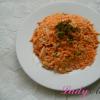How did I learn to be frugal? Tips for a thrifty housewife A thrifty housewife part.
Economical hostess. Part 1 - NutritionAll rich people who I met in my life knew how to save and rationally use the resources at their disposal. They never spent money without first asking the question: what will it give me? And vice versa, those people who clearly had financial problems and often asked for a loan were guided by the principle “we live once and in a big way”.
Saving for the sake of saving itself is a thankless and merciless business. It is necessary to save in order to free up financial resources for more important purposes than the clogged refrigerator shelves. And the first step to reasonable savings should be taking into account the available financial resources.
It is impossible to manage your money wisely if the exact amount of income and expenses is unknown. Therefore, if we have decided to take the path of reasonable food savings, then we need to know exactly how much the family spends per month on food, and what percentage this amount is from the general family income.
I think that you should not set yourself the goal of reducing, say, the cost of food to a certain amount. It is much wiser to set a goal to reduce the percentage of food expenses. And this is achieved in two ways:
- by reducing costs;
- by increasing income.Which of these ways is preferable for you personally - choose for yourself. Food expenses should not exceed 30% of total income. Optimally - up to 20%. If less than 10%, then you can only envy your income.
Accounting for expenses should be kept for at least two or three months in order to get an idea of where the money comes from and where it goes. Even if you think you have a rough idea of this process, there are many surprises waiting for you. For example, you will be surprised how much extra money can be spent on various sweets and uselessness, such as chocolates, chips, modest gatherings in cafes, etc. When I started keeping records, I was literally shocked by the size of the column: "Eating out." Then, for several months, I tried to patch up this black hole, as a result, the number in it no longer looks so frightening.
Well, then, after getting to know the reality, you can start planning the family budget and specific tasks: where to cut and where to add.
Accounting can be kept in different ways: the old-fashioned way in paper form or using computer programs.I remember that as a child, my mother had a special notebook in which she scrupulously entered all expenses. Then at the end of the month I counted everything and delivered a verdict. As a rule, it began with the words: "Everything is lost, let's go around the world ..." And ended with the words: “Despite the crazy spending of our dad, I managed to save so much this month.”
Now the time has changed, instead of notebooks, tables in Excel and special programs for home accounting have come to the box. Here you can see an overview of such programs and choose the right one at this link.
Personally, I have used these programs over the years:
. http://easyfinance.ru/
. http://www.keepsoft.ru/homebuhl.htm
. http://justtry.ru/buh/family-accountingIn principle, they are similar in function, I switched from one to another only because the first one bothered me. So I changed it once a year. The first is online (but the most multifunctional). And the second two can be installed on your computer.
In any case, the main thing is not the form, but its content. Accounting for all expenses and income is a tedious and painstaking task, but very effective and useful.
Should I save on food?
This topic was born from one conversation near the sandbox, in which four young mothers participated. While the kids were making Easter cakes, we discussed a very burning question: who spends how much money on food? We all had experience in housekeeping and our own vision of this problem. Everyone believed that it was his approach to the distribution of the family budget that was the most correct and convinced others of this.Yegor's mother complained about the crisis and the eternal lack of money. Necessary payments and paying bills ate up almost all the money earned, so I had to save on food. For example, fruits were bought only once a week, and pasta, cereals and potatoes were the main food. Frankly, we were amazed by this recognition, since outwardly the family gave the impression of being financially prosperous: two new cars, expensive clothes and toys for the child, excellent repairs. Although, as it turned out, it was the payment of loans for these cars and the new built-in kitchen that required the lion's share of the family budget. And on the minuscule that remained, the family lived.
Matvey's mother immediately stated that she does not save money on food and does not advise us. She is going to give her child everything only the best and dearest, and she will never regret anything for her boy. They always have fresh fruit, meat, smoked sausage and red fish, expensive cheeses in their house. True, not everything has time to be eaten and a lot is thrown away. And it’s not at all possible to save money to solve a sore housing issue: they live together with their father-in-law and mother-in-law in a two-room Khrushchev, and the father-in-law also has serious problems with alcohol ... But the family is guided by the motto “We only live once” and in matters of nutrition, really, no what does not deny itself.
Anya's mother complained that too much money is spent on food. Especially for all sorts of "unnecessary", like sweets, chips, chocolates. As soon as the husband goes somewhere with the children, almost the entire amount that she allocates for food for a whole week will be spent on such nonsense. In addition, my husband is a very picky eater. For example, he flatly refuses to eat vegetable soups and cereals. For him, meat should be mandatory every day and at least for lunch and dinner. And the meat itself is by no means in the form of minced meat or chopped pieces, but a large steak. The eldest son began to adopt the same eating habits. So, no matter how hard she tries, no savings come of it.
I told them that I had been doing home accounting for many years and I always knew exactly how much money our family spends on food. I try to keep this amount within 20-25% of our total family income. If the income in any month pleases, then we indulge ourselves. Well, if they decrease significantly, then I am able to feed the whole family tasty and varied for $ 30 (less than 1000 Russian rubles) for a whole week. True, the girls did not believe me. They unanimously declared that for such an amount you can feed only pasta with potatoes, and you can definitely forget about the taste and variety. No matter how much I convinced them that it was more than real, how much I did not give examples, they were skeptical.
Several months have passed, and this conversation has not gone out of my head. In our society, it is not customary to openly discuss your income and financial problems. You can convince others as much as you like that everything is in order in these matters in the family, but if this is not so, then the family itself suffers from this, first of all. I will not take on the role of a financial guru and will not talk about money at all. I want to talk about just one of the aspects - money for food. In this matter, I have both experience and skills and certain successes.
There are no problems with money in only one case: with an unlimited number of them. For example, if you have a Magic Nightstand in which money appears by itself. Or a good fairy godmother who gives you as much money as you want. But, as a rule, our resources are limited and have a certain source of income: salary, business income, pension, parental assistance, rent income, allowance, etc.
At the same time, the possibilities of the consumer society surrounding us have no limits. The more money we have, the more temptations and temptations to spend it. It only at first glance seems that the cost of food can be limited by the capabilities of the human body and appetite. Truffles, foie gras and roasted nightingale tongues are food not for the hungry, but for the rich. Do you know the saying: “The more money, the more they are missing”? And this is true: if you do not control the flow of money, then, regardless of the amount of income, there will always be little of it.
Why save money on food?
Firstly The money saved on food can be spent on more necessary and important things. For example, to solve the housing issue, develop your own business, educate children, health, vacation, etc. It is very sad if the most important priority in the family is "to eat deliciously without denying yourself anything." Maybe your child would rather eat hake today than salmon, but study at Oxford tomorrow? Or will you deny yourself red caviar and blue cheese for several years, but you will be able to buy the house of your dreams? If you believe that you can afford the fulfillment of any desires without restrictions, then say hello to the good fairy godmother.
Secondly, the transition of the family to a thrifty diet means a simultaneous transition to a healthier diet. For example, the rejection of smoked sausage, sprats, store-bought semi-finished products will only benefit the body. And an increase in the amount of available vegetables in the diet, such as cabbage, carrots, beets, onions, etc. would be approved by any nutritionist. In addition, the refusal to eat meat at least two days a week, the introduction of vegetarian days into the menu is welcomed not only by religious orthodoxies and vegetarians, but also by doctors. Saving on food is not the use of low-quality products. Saving on food is the choice of quality products at a reasonable price.
Thirdly, the ability to save and feed a family for a limited amount is a very important and necessary skill for any housewife. God grant that we all never know the need, so that the experience of our grandmothers who went through difficult wartime, or our mothers who managed to raise their families in the difficult 90s, will never be useful to us. Let's hope that we have a cloudless future ahead of us, without crises and losses. But the ability to save and save in the small is the guarantee of our confidence that we will cope with the big. If you know how to save and spend the money you have wisely, then you are not afraid of sudden financial crises associated with illness, job loss, falling income levels, etc. Because there is self-confidence, and this is the key to success.
What can't be saved?
- On the quality of products. We carefully study the expiration dates and appearance of the products. At the slightest doubt, we refuse the suspicious.- You can not save on health. The diet should be fresh vegetables, fruits, foods rich in protein. If you completely switch to pasta and potatoes, then in the future you will have to spend even more on medicines than on such “illusory” savings.
- On petty and rare pleasures. If you want to treat yourself to something tasty, then so be it. The less often, the greater the joy from such pampering.
How can you save:
- To replace store-bought semi-finished products with homemade ones. We reduce to the minimum possible the consumption of sausages, sausages, dumplings, fish sticks and cutlets, ready-made chickens, sauces and mayonnaises, salads, five-minute cereals, ready-made pancakes, cookies, sweets and other sweets. Instead, we cook more on our own: soups, casseroles, salads, cereals, pasta, various gravies and sauces, pies, mannas, charlottes and other cheap, tasty and healthy dishes.
Sausages or steak?
- On the exclusion of products from the category "pampering" and snacks: chips, buns, crackers, sandwiches between main meals.- On the rational use of already purchased products. We don't throw anything away! We perceive a product that has gone bad in the refrigerator as a mute evidence of our poor household skills: either you don’t know how to buy in accordance with your needs, or you don’t know how to cook.
Stale bread turns into crackers, croutons, breadcrumbs, gratin toppings.
. Cottage cheese is made from yesterday's milk.
. The missing kefir will go into the pancake dough.
. Most prepared meals (except salads) keep well in the freezer.
. Yesterday's uneaten porridge is added to today's soups, cutlets, casseroles.
. "Extra" vegetables are frozen until better times.
. Small pieces of anything left in the refrigerator make excellent toppings for pizza and pies.
. Cucumber and tomato marinades are the basis for pickles and borsch, you can stew meat in them.
. After frying the meat, the remaining juice and fat turn into the basis for sauces, etc.- Eating out. Minimize snacks in cafes and other catering establishments. Homemade food is tastier, healthier, and cheaper. You can take on work "soboyki". Yes, for this you will have to cook more at home and organize yourself in planning tomorrow's dinner. But the savings will be obvious. To do this, you need to specially buy containers and thermoses, in which you can bring any dishes with you: from soups to salads.
Charlotte or candy?
- We buy vegetables and fruits only in season. No fresh strawberries in February or persimmons in August. The benefits and taste of greenhouse winter tomatoes are highly questionable, and the blow to the wallet is tangible. You need to buy what has grown under the sun. In winter, these are long-term storage vegetables and fruits: beets, cabbage, carrots, onions, garlic, potatoes, celery, apples, oranges, bananas, persimmons. In summer, the choice is much wider.- The freezer is our friend. We do not buy frozen vegetables, herbs, berries and fruits. We are not lazy, but we prepare all this on our own in summer and autumn. If there is a desire and opportunity, we independently collect and dry / freeze mushrooms and berries. We actively use seaming, pickling and salting for the winter.
- Before going to the store, we make a menu for the week. Based on it - a list of products and buy only on it. This is the surest way not to buy anything superfluous and unnecessary!
- Interested in prices in each store for similar products and prefer those that are cheaper. If the purchase occurs once a week, then it is best to choose large grocery stores with more affordable prices. Even if such a store is far from your home, the cost of gasoline will pay off due to the large volume of purchases.
- We study promotions and discounts. And not only prices, but also the expiration dates of products for these promotions. If the products can be eaten before the expiration date, then we buy.
Before the purchase we study the ratio of the real weight of the product in the package and its cost. It makes no sense to pay for a beautiful and large package. It is better to prefer a similar product that is 30% more expensive but 50% larger.
Nuts or chips?
- Nuts, dried fruits and seeds cheaper by weight than in the package.We are trying to cut down on meat consumption. I am not advocating to completely abandon the use of animal proteins. If you want, they should be (although vegetarians and ascetics prove with their personal experience that you can live without meat). Meat must be in the diet of children, pregnant women and people engaged in physical labor. But it doesn't have to be every day. Several days a week, meat can be replaced with other protein-rich foods: fish, legumes or dairy. And cheap and useful.
- On purchased juices. Most of the juices that are sold in bags in our northern stores are made from concentrated powder. An exception may be tomato, apple and birch juices (in our latitudes they are often poured into jars in their original form). It is cheaper and healthier to cook compotes from fruits and berries frozen in summer.In the following publications, we will talk more about reasonable food savings. We will share ways and methods of saving, available recipes. We will learn how to plan a family budget, how to determine the required amount of food expenses per week. Let's talk about the personal experience of saving, our own successes and results.
Do you know how much your family spends on food?
ADVICE OF THE ECONOMIC HOUSEWARE. So, from the pay we buy 4 large chickens and a piece of pork. 1. Cut off chicken wings, drumsticks, these are 8 pieces each, for 2 lunches and dinners. 2. Cut off all white meat, divide the fillet into 2 pieces. Make chops, 16 pieces come out. To freeze. 3. Cut off the rest of the meat from the bones, add pork, minced meat. We divide into 3 large and 1 small part. We added rice, vegetables. We wound them into 2 parts of meatballs and cabbage rolls, froze them. 4. They made meatballs for soup from a small part of minced meat, froze it. 5. Bread, grated potatoes were added to the remaining minced meat, cutlets were stuck in the freezer. 6. Boil the bones from chickens, so that they only cover with water, cleaned of the remnants of meat, you can immediately put it into pasta in a naval way. Pour the cooled broth into cups and freeze, I get about 6-7 cups. And then we cook soup out of it, borscht ..
MUSHROOMS JULIEN Ingredients: ● For 500 - 600 gr of champignons ● 3 onions ● 150 gr melted butter ● 2 - 3 tbsp. l. olive (sunflower) oil ● 500 ml sour cream ● 100 g hard cheese ● salt, pepper to taste Preparation: 1. Wash mushrooms, dry on a paper towel, break out the legs, do not use them. 2. Cut the mushrooms into thin strips, onions - into small cubes, cheese - grated. 3. Fry the onion in oil until golden brown, then the mushrooms. If there is not enough oil, add olive or sunflower oil. When the mushrooms are fried, add 2 tbsp. flour and mix well. 4. Fry the mushrooms with flour for a couple of minutes and pour in the sour cream. If the sauce is thick, add a little milk or sour cream to the consistency of liquid sour cream we need. We put the finished sauce in cocotte bowls. 5. Sprinkle cheese on top and bake for five minutes in the oven, heated to 250C until golden brown. Bon Appetit.
MACKEREL IN 3 MINUTES "This recipe was told to my mother by a fish saleswoman at the market. It is so elementary that I was amazed at such an excellent result. Of course, this is a la smoked mackerel, since it does not smell like smoked in the recipe, but the taste of the fish is great. Ingredients: Mackerel (medium) - 1 pc Onion peel (as much as there is, per eye) Salt (spoons without top) - 5 tablespoons Water - 1 l Preparation: Soak the onion peel for a short time in water. Then put on fire and add salt. liter of water you need 5 tablespoons of salt (if you need more water, then salt, respectively). Boil the salted onion water, put the mackerel and cook for exactly 3 minutes! Then put the fish in a colander and you can eat. Bon appetit! Author's comment: The fish is small and I managed to boil completely.Although at first I was also embarrassed by the fact that it only takes 3 minutes to cook.If the fish is large, then it can be cut lengthwise so that it is exactly boiled or pierced with a knife in several places.
Many housewives are forced not only to take care of household chores and raising children, but also to manage the family budget, be able to save and set aside money for all sorts of unforeseen circumstances, and of course for themselves.
But not many housewives know how to save money, how to rationally manage the household, so that by the next salary of the spouse, the family still has money.
Today I will tell you what you can save on in everyday life, how practical housewives save, and I will also reveal several possible ways to save.
In modern terms, today I offer several life hacks for housewives about home savings.
What can you save on when doing homework?
Yes to everything! You can save in almost all cases that are inherent in every housewife. Save on groceries, save on utility bills, save on laundry, save on apartment cleaning. You can even learn to save your own time by properly distributing your household chores.
Life hack 1. Reduce food costs
I have already told in detail how you can save on food (I recommend that you follow the link and read this article). Now I will give a few simple rules and tips that will help reduce your family food costs:
- We arrange complex trips to the store no more than once a week. Let's say we go shopping on Saturdays. But this applies only to products with a relatively long shelf life. For products such as bread, milk or cottage cheese, we go as needed.
- Before going to the store, we conduct a thorough audit of the available food products.
- We are compiling a sample menu for the coming days. That is, you need to figure out what we will cook in the coming days. Do not forget to listen to the wishes of your household.
- We make a list of products based on the compiled menu. In the list, be sure to indicate the type of product and its weight or volume. Having a list and sticking to that list will help you avoid buying products you don't need.
- We go to the store full. The husband also needs to be fed before the trip. Hungry shoppers buy 10-15% more food than the family needs.
- You can't go to the store after work. The reason is similar to the previous point. If you are tired and arrived at the store, which is also full of people, you will not go with a list and choose the necessary products, but simply buy the first goods that come to hand and hurry to go home to rest. Accordingly, your account at the checkout will increase significantly from this.
- If possible, do not take children to the store - as a rule, you have to buy all sorts of unnecessary “sweets” with them, which will also increase the total amount in the check.
- Choose the products you buy carefully. It is necessary to check each time not only the expiration date, but also the declared weight. And compare the prices of similar products, suddenly a similar product is a little cheaper on the next shelf.
- Buy products only on the list. Going beyond what you need will increase your costs.
- Don't buy more food than your family can eat. You will have to throw out the excess, and you have already paid the money for it.
Life hack 2. Save on utility bills
- Turn off all electrical appliances that are not currently in use. Well, why keep the TV on in a room where no one is in for a long time?
- Turn off the lights in all rooms that are currently empty.
- Installing two-tariff electric meters allows you to significantly save on electricity. If you have such a meter, and, accordingly, a cheaper rate at night and on weekends, you can save a lot. For example, we start the washing machine and dishwasher at night. We iron clothes after eight o'clock in the evening or on weekends. Postpone baking in the electric oven for the weekend.
- Installing water meters allows you to save on payments for water and sanitation. You can read more about this here: Why is it necessary to install water meters, and what are the savings from installing water meters.
- Carrying out timely verification of water meters also allows you not to overpay.
- Do not forget on time, and preferably at the same time, to transfer the readings of metering devices (water, electricity, heating meters, etc.) to your management company. With the timely transfer of testimony, you will not have sharp "differences" in payments in receipts for utility bills.
- Timely payment for utility bills allows you to avoid accrued fines, which can significantly increase the amount in the receipt.
Life hack 3. Save on cleaning and home cleaning products
Any housewife knows that the less often the house is cleaned, the more cleaning products you may need.
In my opinion, the most problematic places in the apartment are:
- a kitchen in which there is constant cooking, and traces of grease remain on the kitchen surface and household appliances;
- a bathroom or shower stall that suffers from soap and shampoo residues and water stains;
- toilet, which must also be always clean.
These are the main areas in the apartment, which take the most money for cleaning. And to keep them clean, and, of course, in order to save money for cleaning, a few tips:
- Wipe down all kitchen surfaces immediately after cooking. The fat formed during the cooking process has not yet had time to dry and stick tightly to the kitchen surface, and it is very easy to wash off with an ordinary damp cloth. It will take no more than two to three minutes, but cleanliness is guaranteed for you. Even if you used a kitchen cleaner at the same time, you will need it quite a bit - a little, rather than when washing hardened stains.
- The same applies to washing the microwave and oven and other household appliances. It is easier and faster to clean household appliances before food or grease remains dry. And yes, detergents in this case will also need much less.
- Teach yourself and your household to rinse the tub or shower after every use. Rinse away any soap or shampoo that has accumulated on the walls of the tub or shower. This greatly simplifies subsequent washing.
- Train yourself regularly, for example once every two days, to clean your toilet bowl with a sanitary ware cleaner. It's very simple. I treated the inside of the toilet, left it for a while, and then just flushed the water. And the toilet is clean, and cleaning time is reduced.
- A clean entrance hall is a guarantee of cleanliness throughout the apartment. It is from the corridor that the main dirt from the street stretches. Accustom yourself to carry out wet cleaning of the corridor daily, for example, in the morning. This is especially true of the "dirty" season. And believe me, spending five minutes cleaning the corridor will cut your time cleaning the entire apartment.
Life hack 4. Save on laundry
The basic savings rules are:
- The washing machine must always be fully loaded. Insufficient or excessive loading leads not only to useless or increased consumption of electricity, but also to excessive waste of washing powder. And excessive loading of the machine (over the norm) may lead to the need for repeated washing - the machine simply cannot cope with such a volume and will not be able to wash the laundry normally.
- Do not pour in too much washing powder - the laundry will not become cleaner from this. Actually, too little powder will not allow you to wash the laundry, and you will have to rewash.
- Sort laundry before washing. This is especially true for colored and shedding underwear. Otherwise, you risk being left, for example, without your favorite blouse.
- Underwear is always washed in a laundry bag to avoid falling out of some parts and their subsequent jamming somewhere in the depths of the washing machine.
- The same applies to sharp objects in the pockets of washed clothes. Accordingly, before loading a thing into the washing machine, it is necessary to check all pockets.
- If you have two-tariff electricity meters installed, then it is best to turn on the washing machine at night. The nightly electricity tariff is much lower than the daytime one, which allows you to save on electricity.
Life hack 5. Save time as a housewife
Time is such a matter that flows too quickly from our hands. It seems that only yesterday you got married, and today your baby has already taken the first steps. Or, just yesterday your spouse took you from the hospital with your first child, and today you are sitting at the graduation party of your son who graduated from school ...
Agree, I really don’t want to waste my time on constant washing, ironing, cleaning. The best time to spend this time is with your family and your children.
But cleanliness in the apartment also needs to be maintained!
Therefore, a few more small tips - life hacks for a housewife, already on the issue of saving your personal time:
- Plan your time. Get a notebook or a pretty diary in which you will write down all your plans for the week. Even if these plans will be repeated from day to day, it is better to write them down. The very fact of planning gradually accustoms to discipline and the achievement of goals.
- Set aside 15 to 20 minutes for yourself once a week. For example, on Friday. And allocate your time to the next seven days.
- The plan must necessarily include time for cooking, time for cleaning the apartment, for ironing clothes.
- If there are small children in the family, the allocation of time is carried out taking into account their children's needs.
- Do not try to carry out general cleaning of the apartment within one day, it is better to do the cleaning gradually. Today one room, tomorrow another. Etc.
- Cooking food for two or three days also saves time for the housewife.
- And stop constantly surfing the Internet or chatting on the phone. Is it worth it? Or maybe the time spent chatting could be used for more useful things?!
The endless crises in Russia and the increase in the cost of services and food prices make us look for opportunities to save every time. You don’t want to be under stress from constant savings, so it’s better to consciously approach this issue and start applying useful tips in your life every day.
When traveling to Europe and America, it has always been surprising that they are very economical with their resources and money. Western people always calculate the expediency of purchases: all electrical appliances and equipment are bought in an energy-saving mode, all garbage is sorted. They always buy goods in stock at discounts, and they take the children home from the kindergarten for dinner, because it is more economical for the family budget.
Let's see how we can save in Russia. Our whole life consists of daily habits that we can revise in order to save money in everyday life.
- Regulate the temperature of hot water when washing dishes, not adding cold water, but slightly reducing the pressure of hot water. And it’s better to save up dishes and.
- Change all the light bulbs in the apartment to energy-saving ones. Save up to 40% on electricity.
- The refrigerator should be placed away from the stove, from the battery, from the window so that the sun does not heat the surface of the appliance.
- When cooking on the stove, the area of the bottom of the pan must exactly match the diameter of the burner. Food is better to cook under the lid. Save up to 20% per month on electricity.
- It is better to load the washing machine after weighing the laundry, that is, at full load. But set the mode to economical. As a result, you save both powder, and water, and the electric power.
- A glass of water when brushing your teeth will save up to 15 liters of water per day, and 450 liters per month.
- A shower saves several times more water than a bath. Don't neglect it.
- Unplug all electrical appliances and chargers from outlets. Turn on the warm floor in the apartment as needed. And in your absence, it is better to turn it off.
- In your chandelier, for example, 10 light bulbs. This amount is needed only when guests gather. Therefore, leave 3-4 lamps for comfortable lighting, this will also bring significant savings.
- Do not put hot food in the refrigerator, wash at night in automatic mode, collect spring water for free, iron clothes when there is a lot of it, and not just one thing.
- It is better to pay for utilities, the Internet, and electricity a little in advance. Many of them give bonuses for prepayment: city tours, favorable rates, paying with bonuses for your fare, access to an electronic library, etc.
So, thanks to these tips, you can save up to 40% per month .

- Stain removal can be done with dishwashing liquid, laundry soap, ammonia.
- A microfiber cloth can be used to wipe dust without any chemicals.
- Air fresheners can be replaced with scented candles.
- Bread is best stored in the refrigerator. It does not ferment for so long and can be used for a long time.
- Instead of sausage, make your own baked meat in the oven. It is more useful and economical.
- Make your own white meat chicken, herring and liver pâtés.
- 3 ply toilet paper is more economical than 2 ply.
On home tricks you can save up to 20-30% .
Everyone knows that it is better not to go to the store when hungry. Everyone also knows about price tags with 99 at the end. But about the menu for the week, I think not.
- Make a menu for the week and a list of products for the week at once.
- Prepare semi-finished products yourself and freeze everything. It can be pancakes, meatballs, cabbage rolls, broths, dumplings and pasties.
- Bread can be freshened up by soaking it in water and then warming it up in the oven.
- From the leftover products, you can cook pizza, scrambled eggs, hodgepodge.
- Plant fresh herbs and onions instead of flowers on the window.
- Put everyone on a dinner plate. So much more economical than throwing away leftovers.
- Tea is healthier and better to brew in a teapot - that's enough for everyone. And you can add thyme bought at the pharmacy, dry apples from the dacha, rose hips from the forest on your own.
- Buy water for drinking in large containers, it is more economical.
- In the morning, drink coffee at work, and not from a vending machine on the street.
- Clearly divide portions for consumption: for example, a pack of kefir is divided into 5 doses, and pour oil for frying in a pan using a spoon.
Do not save, but diversify your diet simply by leading accurate calculation of all costs .

- Use the 72 hour rule: don't buy right away, don't get emotional.
- Buy groceries with a fresh head, when you are not very tired, so you will buy less unhealthy food.
- It is more economical to buy groceries in a basket than in a cart.
- Small children increase the cost of shopping by 30%.
- Bulk purchases at vegetable bases, collaborating with someone, bonuses in the store, large packages, promotional sales of the right product - use it.
- Always consider the cost of one piece goods, and not per package.
- Focus on prices.
- Freeze foods in the fall. Eggplants, peppers, carrots, beets, tomatoes are more delicious in autumn. Then it is convenient to cook from them, and they are as tasty as in the high season.
save up to 40% .

- Lead a healthy lifestyle, there will be savings on medicines.
- Walk 5 km a day and you will not be overweight, and your complexion will improve significantly.
- Make healthy face masks from everyday products.
- It is better to visit a dentist, gynecologist, therapist once every six months so you do not miss the disease, and you will not need expensive medicines, as well as dental treatment.
- Make gifts with your own hands, you can give flowers grown with your own hands, and pack everything yourself.
- Manicures and pedicures will last longer with proper care.
- Do not buy packages from the store. The package costs 10 rubles, you go to the store 10 times a month, here you have 100 rubles, and this is 1 kilogram of apples.
- When shopping, the price must be compared with the cost of your hour of work.
- Review communication tariffs for the whole family.
- Plan the weekend not only for going to paid events, but also prepare excursions to interesting places yourself, and promise the children a picnic in nature - everyone will be interested.
- Don't buy books. Enrolling in an electronic library will give you very big savings, for example, a subscription for a year costs about 2-3 thousand, and one book costs 300-400 rubles.
Daily habits will bring you more an organized approach to your money and time .
Initially, when you introduce new habits, the body resists a lot, and you may even feel tense and tired from it. You need to consciously approach the issue of saving, and accept what, in the end, will bring you not only savings in money, but also benefits.
Try it, you will succeed! And then, it's so interesting to manage your little home empire!
If in your family food costs make up the majority of expenses, then you probably thought about how to save on food without compromising health.
Tastier and healthier!
Is it possible to save money on food? After all, proper nutrition is the key to health. But you can replace expensive products with more budget ones. By the way, many inexpensive products are often healthier and even tastier than expensive delicacies.
■ Avoid non-perishable milk: soft-packed milk is much cheaper. If yoghurts are too expensive, replace them with kefir, which you can make yourself - from boiled milk and sourdough.
■ Don't buy canned pates. Buy the liver and make the pâté yourself.
■ Want to pamper your family with salted salmon? A carcass of red fish is much cheaper than a fillet, and salting it at home is as easy as shelling pears.
■ Instead of a package of sliced herring, buy barrel herring and cut them at home.
■ Instant coffee is not only more expensive, but also less useful than coffee beans. You can grind them and cook a fragrant drink yourself.
■ The simplest example of savings is sausages and sausages. They are not cheap, and only manufacturers know how much meat they contain. Buy meat and cook it: beef can be boiled, and pork can be baked in the oven.
■ Meat seems too expensive? Partially replace it with chicken, and buy it whole, not in parts - it's much more economical.
■ In winter, do not rush to buy ready-made pickles - making sauerkraut or carrots in Korean is not difficult at all.
■ If you can't live without sweets, arm yourself with quick homemade baking recipes. Pumpkin pie is cheaper and healthier than store-bought cake.
■ Try to eat less potatoes and replace them with all kinds of cereals. By the way, you can also save on cereals: instead of instant oatmeal, buy regular oatmeal. Cereals, flour, pasta, sugar are better to buy in large packages - it's much cheaper.
✓ Linen bags are best for storing flour and cereals. Before you put food in them, boil them in a solution of sodium chloride - so there will be less chance that pest bugs will start in the cereal.
Secrets of Proper Storage
Learning to save on products also means learning how to store them properly. Think about how much money you throw in the trash along with moldy bread, wilted potatoes and spoiled meat! Let's save money by saving food.
■ Keep bread in the refrigerator so it doesn't get moldy. If you keep it in a bread box, put an apple there - so the bread will stale more slowly.
■ Fresh meat can be stored in the refrigerator for up to four days. If you plan to cook tomorrow or the day after tomorrow, wash it, cut it and put onion rings.
■ Before you freeze fresh meat and fish, do not be too lazy to butcher these products: clean the fish, and wash the meat and cut it into pieces. Place each serving in a plastic bag. Remember: you can not re-freeze the fish!
■ To store cheese and sausages, use cling film, which must be changed every time you take the product out of the refrigerator. To prevent the sausage cut from drying out, put a piece of lemon or carrot on it.
■ Do not store oil in an oil can with a transparent lid, as it oxidizes faster.
Household chemicals: easy to find a replacement!
If you want to keep your home clean and safe, try using natural cleaners.
| What are we replacing? | What do we replace? |
|---|---|
| Dish cleaner | Warm soapy solution with baking soda |
| laundry bleach | soda ash |
| Stain remover | Lemon juice, citric acid |
| Toilet bowl cleaner | A mixture of baking soda and vinegar |
| Air freshener | Natural aromatic oils that are sold in pharmacies |
| Universal detergent | Warm soapy water |
| polish |
1. Cornstarch 2. Napkins with silver ioans 3. A teaspoon of olive oil + half a glass of lemon juice |
| Carpet cleaner |
1. Baking soda paste with mineral water 2. Cornstarch |
| Window cleaner |
1. Two tablespoons of vinegar in a glass of water 2. Lemon juice 3. Just hot water |
| Descaler | Vinegar |
| Pipe cleaner | Half a glass of baking soda and half a glass of vinegar, which after half an hour should be poured with boiling water |
| Sanitary cleaner |
1. Sliced raw potato 2. Mustard Powder |



















